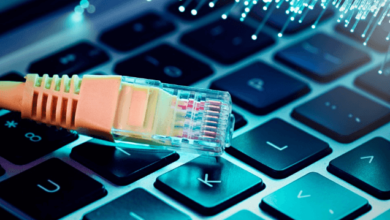93jf7yd: Unique Identifier or Code

The code “93jf7yd” serves as an intriguing case study in the realm of unique identifiers, which play a pivotal role in modern data management systems. By acting as distinct markers, such identifiers facilitate the organization and tracking of digital assets, thereby ensuring accuracy and integrity. As we consider the implications of “93jf7yd” within software development and security frameworks, it raises pertinent questions about its broader applications and potential evolution. What challenges and innovations lie ahead in the use of unique codes like this one?
Understanding Unique Identifiers
Unique identifiers, which serve as distinct markers for entities within various systems, are essential for ensuring accurate data management and retrieval.
Various identifier types, including numeric, alphanumeric, and UUIDs, play a critical role in data integrity.
Effective code generation practices enhance the uniqueness of these identifiers, minimizing duplication and errors, thereby facilitating streamlined access and improved data interoperability across platforms and applications.
Applications of 93jf7yd
The alphanumeric code “93jf7yd” serves as a remarkable example of unique identifiers in various applications, particularly in digital environments.
Its utility in code generation enhances software development, ensuring efficient asset tracking and user identification.
Furthermore, the integration of such identifiers within security protocols fortifies data integrity, safeguarding sensitive information against unauthorized access, thereby promoting a secure digital landscape for users seeking autonomy.
Significance in Data Management
Effective data management relies heavily on the implementation of unique identifiers like “93jf7yd,” which streamline the organization and retrieval of information.
These identifiers enhance data integrity by ensuring that each entry is distinct and easily traceable.
Furthermore, identifier standardization promotes consistency across systems, facilitating seamless integration and analysis, thereby empowering organizations to maintain accurate records and support informed decision-making.
Future of Unique Codes
As organizations increasingly rely on advanced technologies and big data analytics, the future of unique codes will likely evolve to accommodate the growing need for scalability and interoperability.
Future trends indicate a shift towards more flexible coding systems, enabling innovative uses across diverse applications.
See also 8285794512: 8285794512: A Complete Guide to Reaching This Contact Number
This evolution will support enhanced data management, facilitate seamless integration across platforms, and empower organizations to leverage data more effectively.
Conclusion
In the realm of digital data management, unique identifiers such as “93jf7yd” function as the backbone of information systems, akin to a compass guiding navigators through uncharted waters. Their roles in enhancing asset tracking and user identification promote efficiency and security within software development. As technology progresses, the importance of these identifiers will only intensify, ensuring that data remains organized and accessible amidst the complexities of modern digital landscapes.




